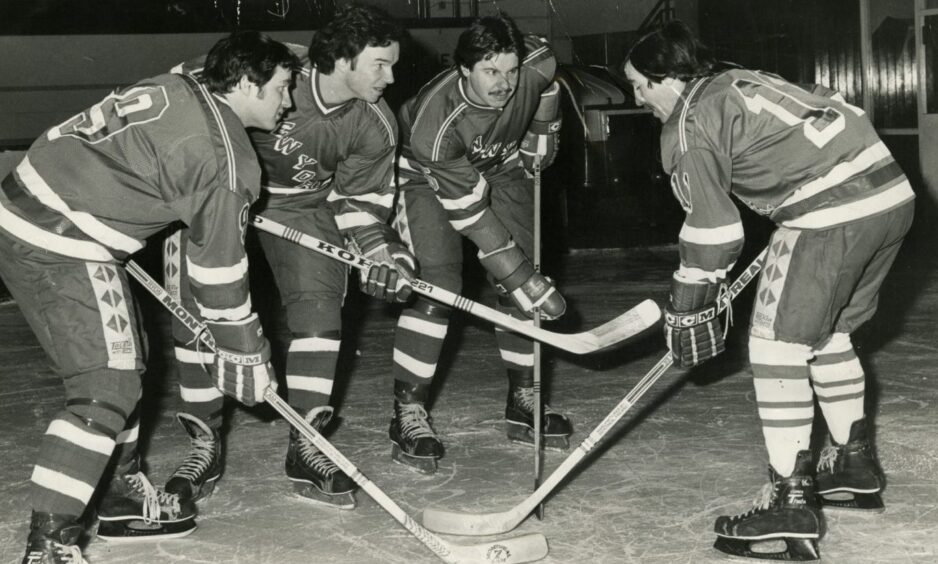
Chris Brinster swapped New York for the Ardler multis and hit the heights with the Dundee Rockets 40 years ago.
Brinster was instrumental at the heart of the defence when the Rockets turned up the heat at Wembley Arena in 1984 to win a third ice hockey Grand Slam.
The Rockets made a clean sweep of every trophy from 1981 to 1984.
Chris will be among the favourites returning to share a stage at the Whitehall Theatre on June 26 to mark the 40th anniversary.
Chris was born in Brooklyn and lost his father when he was six.
He was a late starter in hockey, after taking up the sport aged 13 when his friend’s father opened up an ice rink in New York.
Chris “ate, drank and slept” the sport, which became the family he “never fully experienced”.
He quickly rose through the ranks of the minor hockey system and played for Suffolk Royals, Quebec Remparts, Concordia Stingers and Repentigny Regents.
Chris signed for Dundee Rockets in 1981 as one of three full-time import players alongside Kevin O’Neill and Roy Halpin, who were team-mates at Concordia Stingers.
The team at the start of the 1981-82 season was made up of fantastic local talent like George Reid, Mike Ward, Joe Guilcher, Dougie Scrimgeour, Graeme Lafferty, Jock McGuff, Kenny Urquhart and brothers Ronnie and Ally Wood.
Getting his hands on ice hockey silverware
The team won the Northern League, Scottish League, Autumn Cup and the British Championship when they defeated Streatham Redskins 3-2 in the final.
Chris managed to drop the British Championship trophy at Kings Cross Station.
“I was carrying the trophy before getting the train to Dundee when it accidently slipped out of my hands and struck the platform with a mighty clang,” Chris told me.
“The station went completely silent for what felt like an eternity.
“I embarrassedly bent down to pick up the trophy and noticed that one of the arms had received a crack from hitting the hard stone floor.
“It was an experience that I will never be allowed to forget!
“But there were so many memorable moments during that first year.
“After winning our first trophy of the Grand Slam in Edinburgh, the entire bus, fans and players alike, went back to our cottage in Bridgefoot and celebrated all night long!”
But the most memorable night during the 1981-82 season was the Icy Smith semi-final against Murrayfield Racers at Kingsway Rink.
The Rockets came back from 8-3 down with 16 minutes left, which Chris still describes as “an ice hockey miracle”.
“We bred into our players a winning attitude,” said Chris.
“We developed our own motto: winning isn’t everything – it’s the only thing.”
Kevin O’Neill left Kingsway Rink afterwards and was replaced by Allard Leblanc, who was an instant hit when the Rockets won a second Grand Slam in 1982-83.
Rockets Removals were in the firing line
A fire extinguisher prank during a pre-season tournament landed them in hot water with the Dutch police but brought the squad closer together.
“We were playing in a tournament in Den Haag and the hotel accommodation was beautiful with large rooms which four to five players could share,” said Chris.
“Allard, Roy, Tom Stewart and I all shared a suite together and after the first game the four of us went out for a bite to eat and a few drinks before arriving back after midnight.
“As we entered the corridor we could see that the hallway was filled with furniture.
“The players had gained access to our room and emptied the entire contents.
“Even the toilet paper and toilet paper holder was removed!”
It took them 30 minutes to clear a way through the furniture and décor to get to the room where they found a note was taped to the door from “Rockets Removals”.
They took three hours to put everything back and got to sleep at 4am.
Allard, Chris, Roy and Tom went out for dinner and drinks again after the second game and arrived back at the hotel and wondered if the same thing would happen.
The hallway was clear.
“I put the key in the lock and flipped up the light switch,” said Chris.
“The players had removed all their beds and placed them all in our suite.
“The ringleaders went so far as Duct taping the players who did not want to participate to their beds and carrying them into the suite with them taped to it.”
Fire extinguisher fight got out of hand
Chris grabbed the chemical powder fire extinguisher on the wall in retaliation.
“Soon there were multiple fire extinguishers going off,” said Chris.
“The powder was now everywhere.
“I remember seeing Fraser Wilson standing in his underwear in the hallway: he was covered from head to toe in white powder and you could only see his eyes!”
When things finally settled down, they spent hours cleaning up the mess and putting everything back together before heading to Amsterdam Airport to catch the flight home.
They were already flying back by the time the police arrived at the departure gate.
“We got back to Dundee and received a bill from the hotel for damages,” he said.
“Every player paid their share and the experience brought us all together.”
The Rockets won the 1982-83 Grand Slam after first winning the two-legged Scottish final against Murrayfield Racers 12-9 on aggregate, following a 26-game season.
The Rockets would go on to defeat Durham Wasps 6-2 in a memorable British Championship game at Streatham Ice Rink in London.
The Rockets made it three-in-a-row with a clean sweep in 1983-84 with Mike Walker arriving from Sherbrooke Jets to replace Allard Leblanc, who went back to Quebec.
Chris and Mike roomed together and ended up staying in the Ardler multis.
Chris Brinster played a blinder with black eye
The Rockets had already qualified for the British Championship at Wembley Arena when Chris almost lost his eye during a friendly against Fife Flyers on April 1.
“I dove down and poked the puck off the stick of Neil Able whose foot came back and his blade caught me above the left eye just above the eyebrow,” said Chris.
“I could see the horror on the faces of the players – it was a serious injury.
“My eyebrow had dropped down blocking the vision in my left eye and also making it look like I had lost my eye.”
Chris was taken to get 65 stitches at Dundee Royal Infirmary, where he was kept awake throughout “to make sure that the stitching was not adhering to my skull”.
Chris ended up with a black eye for three months but still lined up in the Wembley final against Murrayfield Racers, which was arguably his greatest game.
“I finished the game with a goal and three assists in our 5-4 victory over our arch-rivals in an exciting match, with Mike Walker netting the winning goal,” he said.
“It was an unbelievable feeling.”
Then they jetted off to Benidorm to celebrate.
The balmy temperatures were a stark contrast to those 3am training sessions at Kingsway Rink which paved the road to success during an era laden with silverware.
The demise of the Dundee Rockets happened just as quickly as they had earned success on the ice and by 1989 top-class hockey came to an end in Dundee.
Chris went back to New York but returned to play for the Dundee Tigers in 1991 and won the Scottish First Division title before the Kingsway Rink was demolished.
- Ticket details for the 40th anniversary celebrations on June 26 are available by visiting the Whitehall Theatre website.
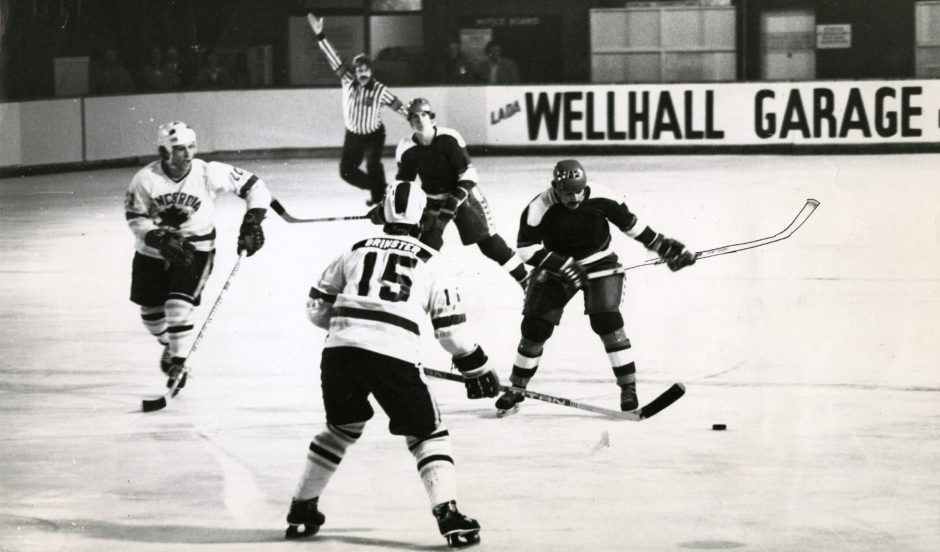
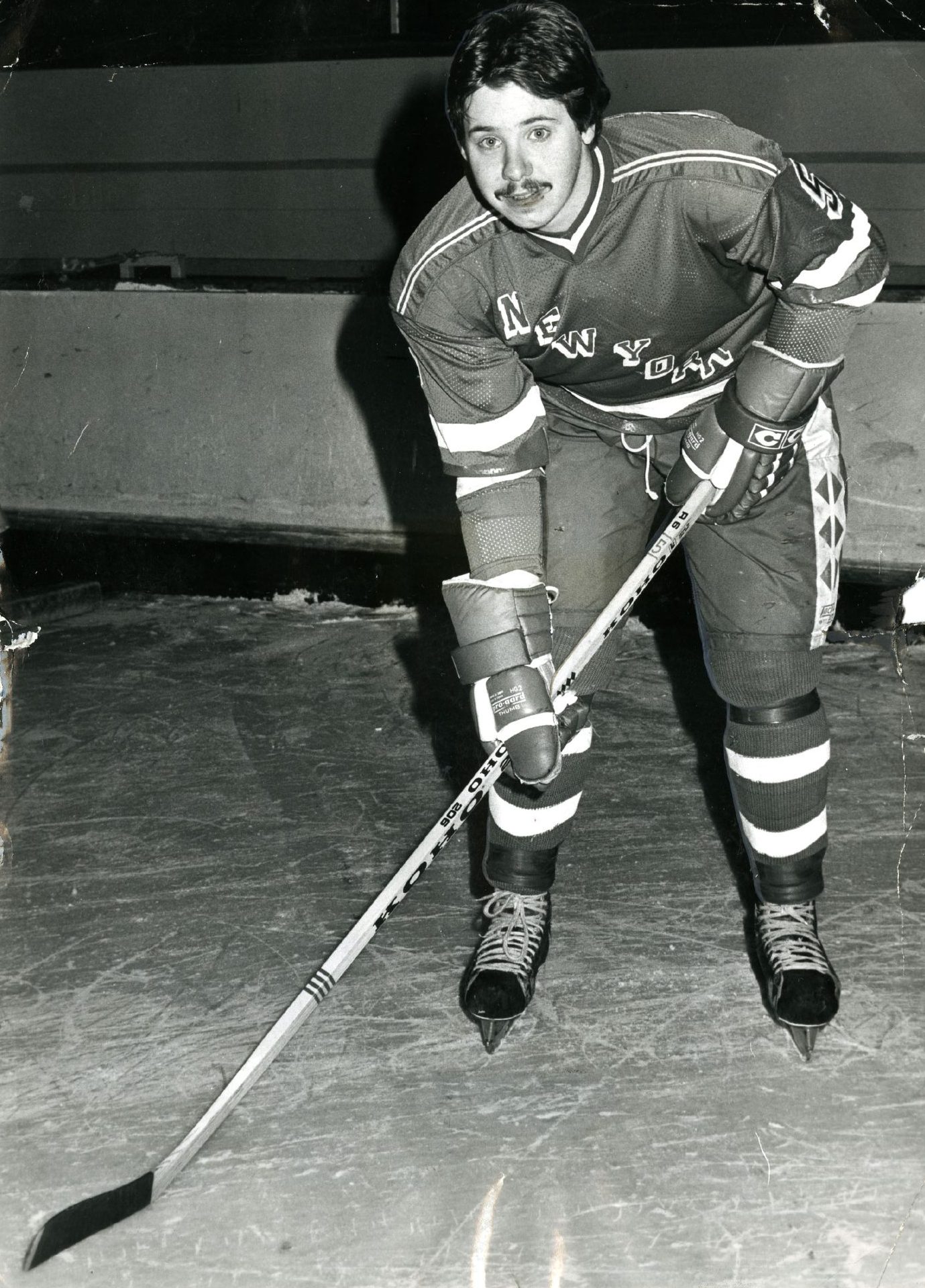
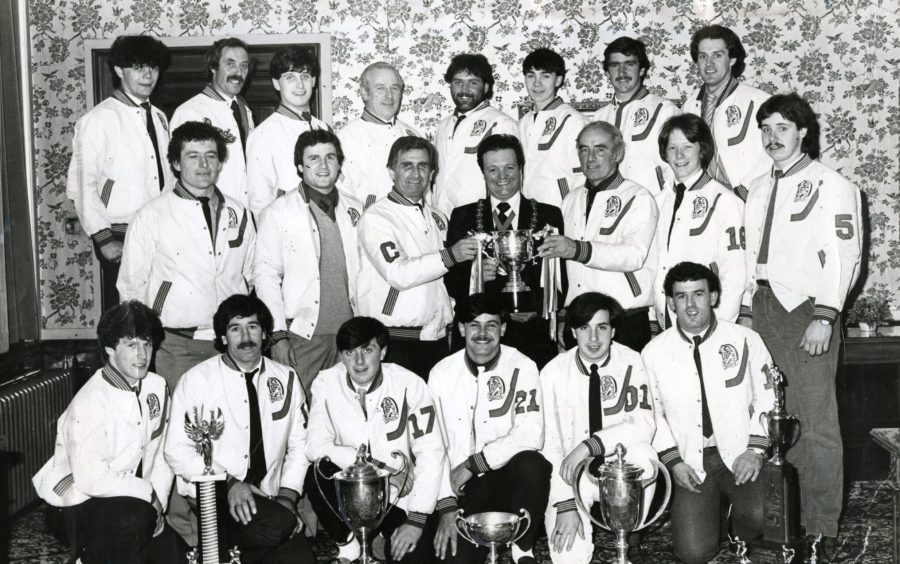
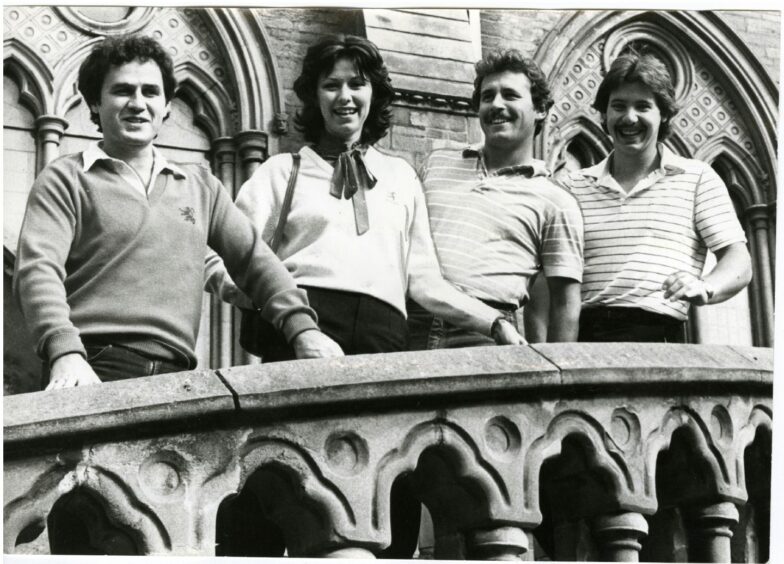
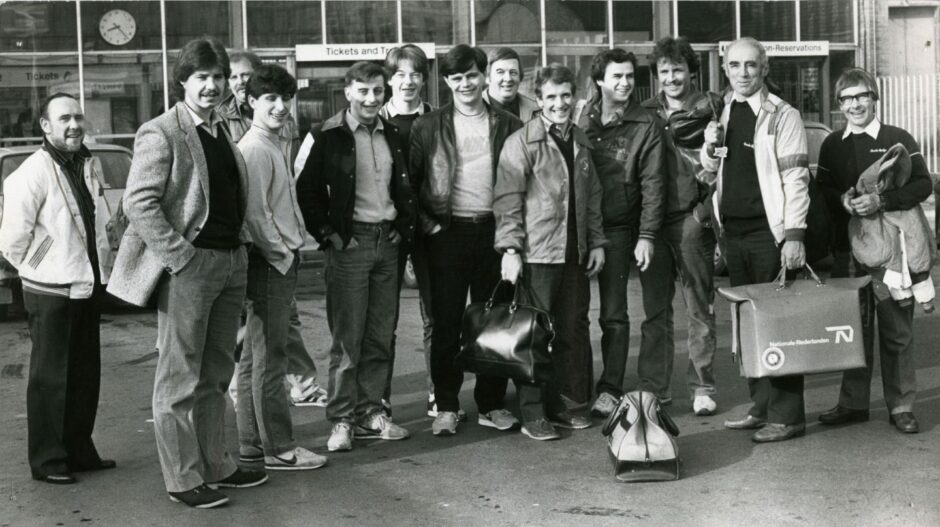
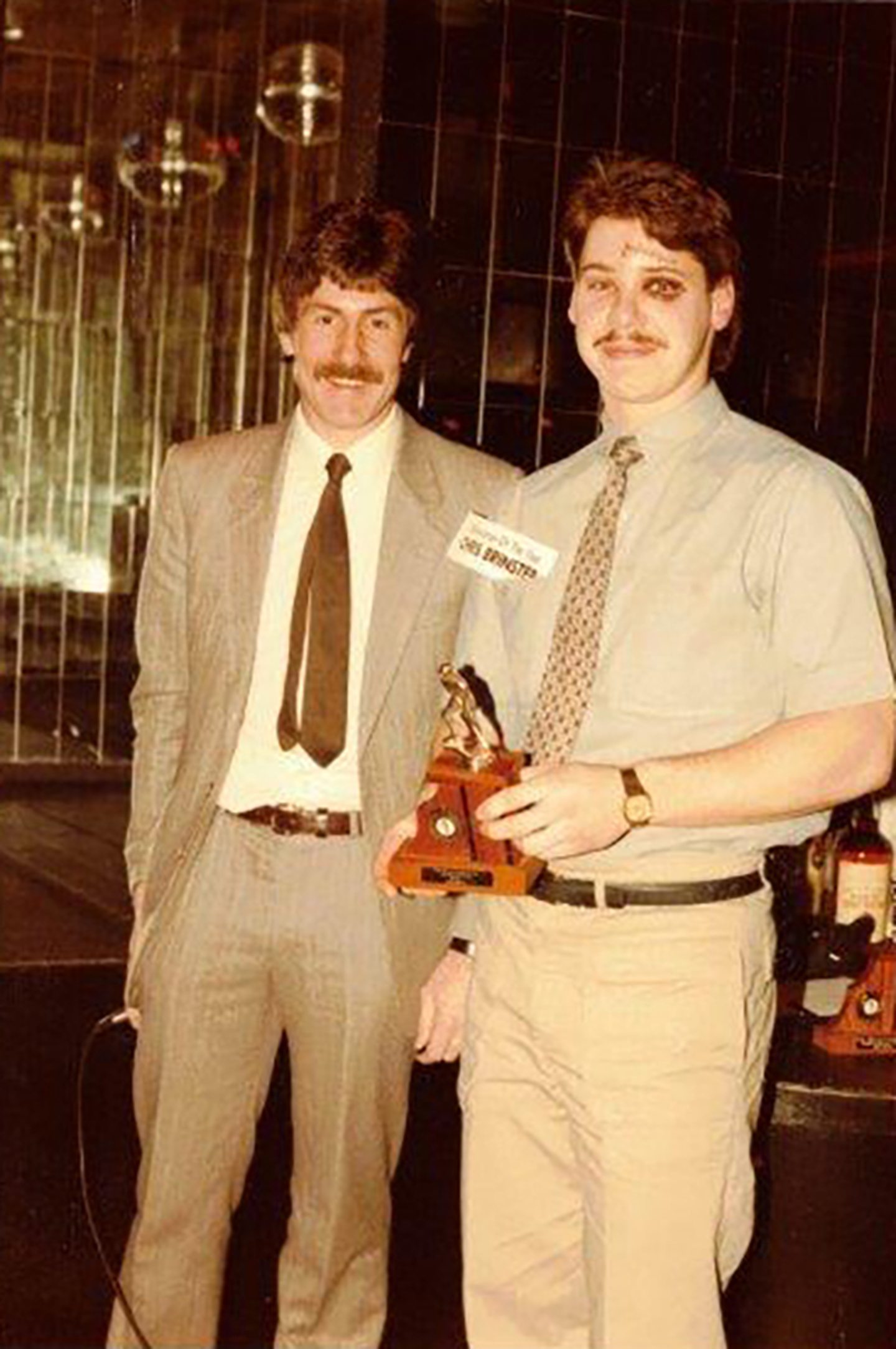
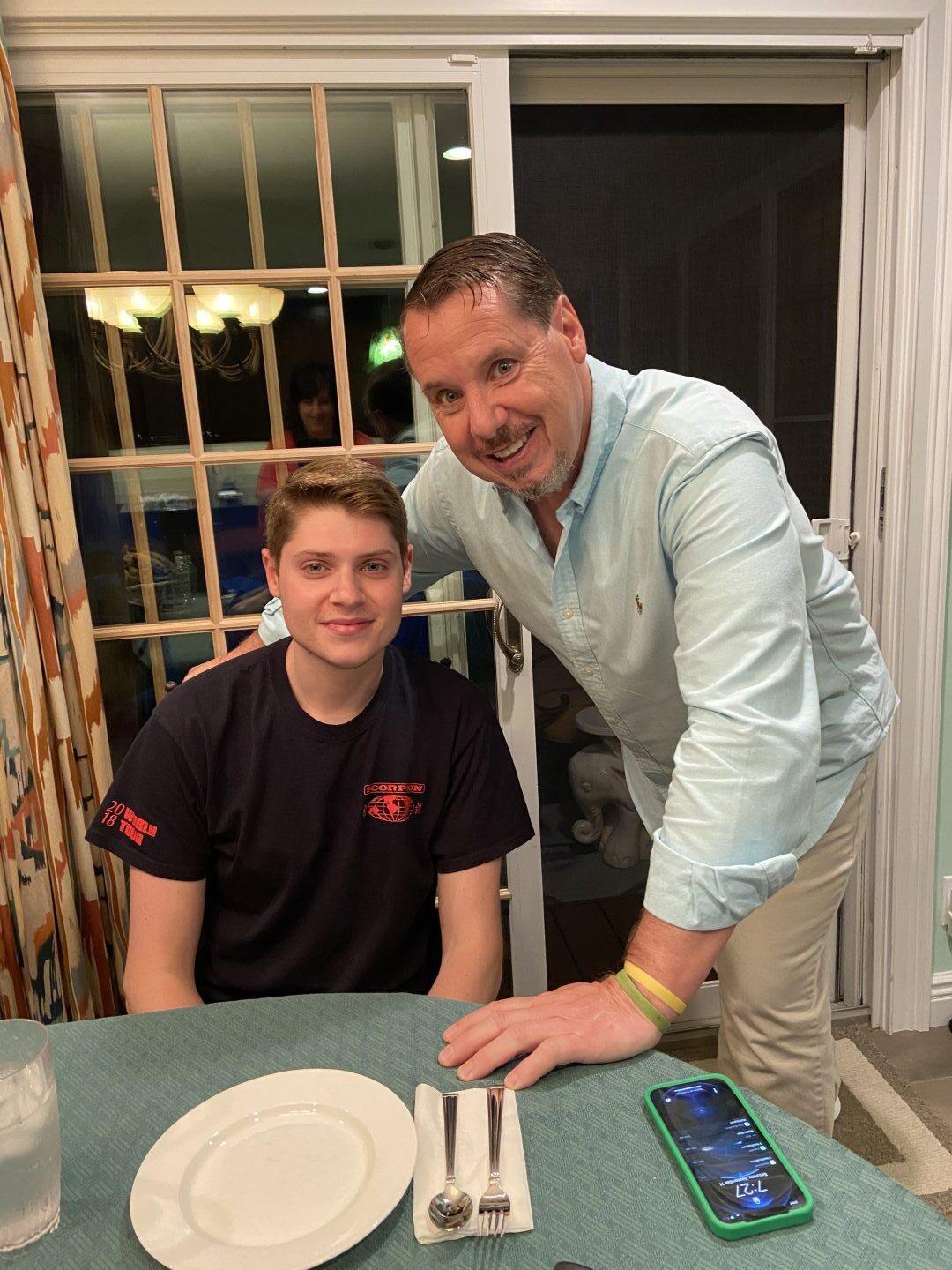

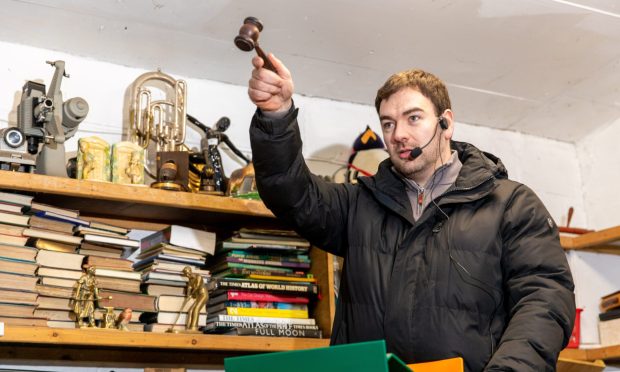



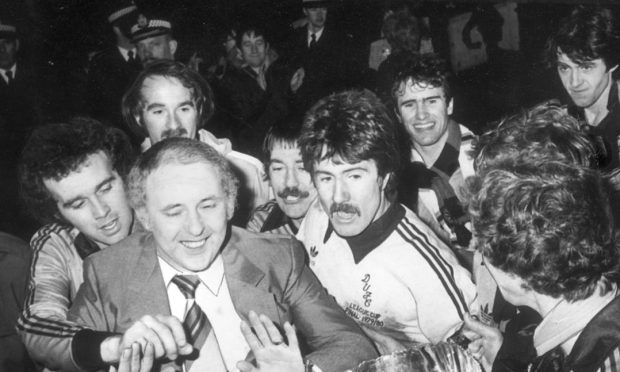


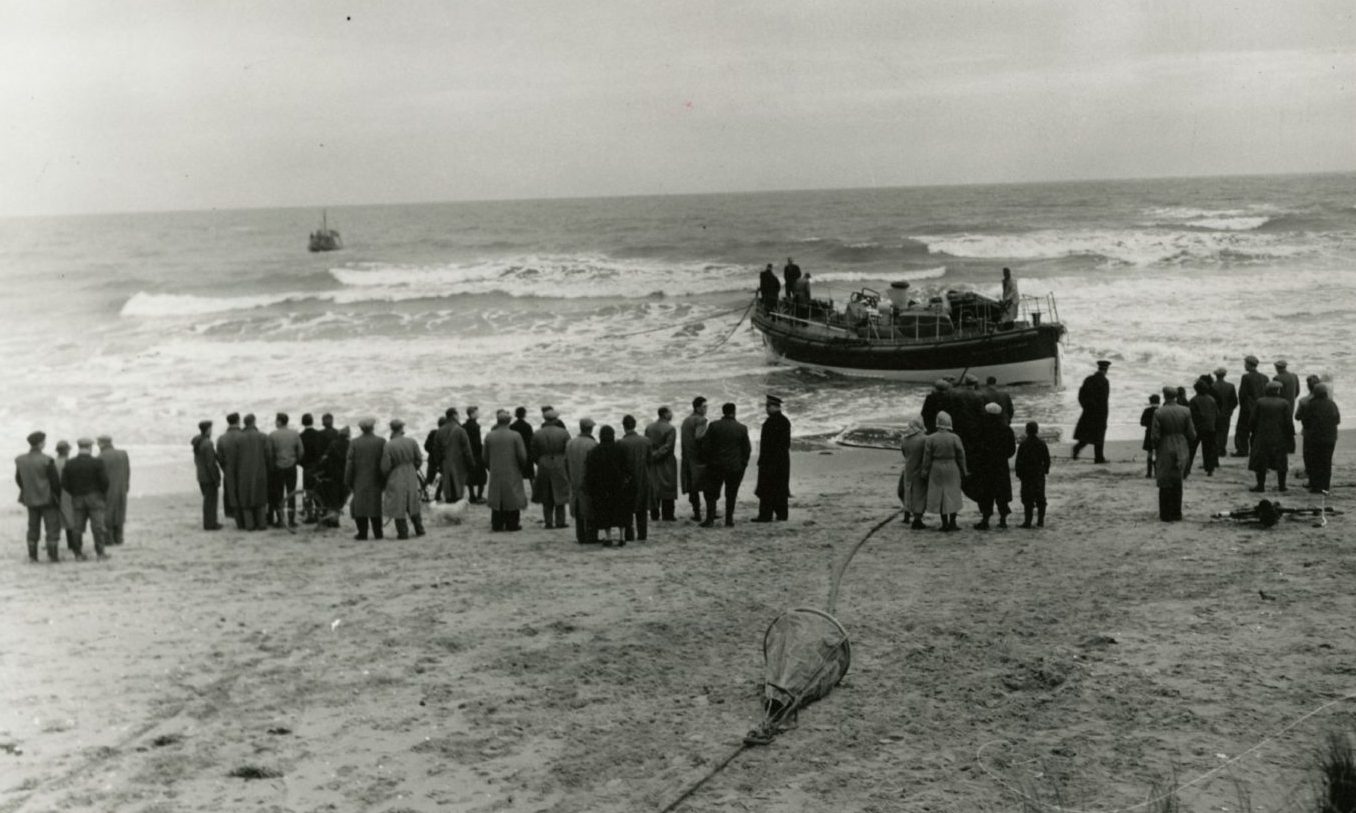
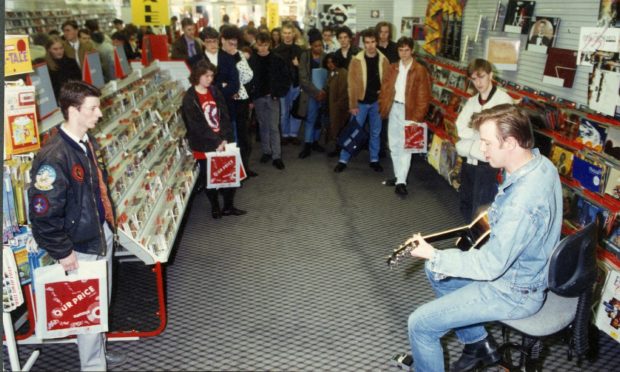
Conversation